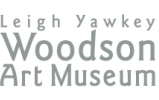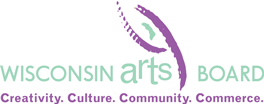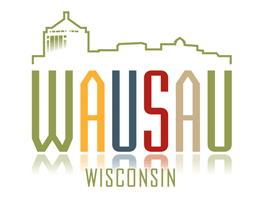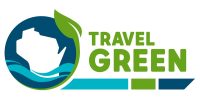Accessibility
The Leigh Yawkey Woodson Art Museum is committed to serving the diverse needs of its audience and ensuring that each Museum visit is barrier-free.
As the only full-service art museum in northern Wisconsin, the Woodson Art Museum, which opened in 1976, offers a myriad of community engagement opportunities and maintains its more than four-decade commitment to always-free admission.
The Museum’s campus and facilities are fully accessible to all individuals with mobility issues. Curbside van parking is available in the Museum’s lot nearest the main entrance; elevators, ramps, and automatic doors assure full access to gallery spaces. Artwork and labels are placed at heights designed to be viewed by all visitors, whether standing or seated.
Wheelchairs, strollers, and portable gallery stools are available to the public on a first-come, first-serve basis near the Museum’s main entrance.
Museum educators are happy to work with teachers and groups to accommodate requests or preferences to create custom visits for visitors with specific needs. To connect with an educator and plan a visit, call the Museum at 715.845.7010 or email scheduling@lywam.org.
From experiences via ever-changing artwork in the galleries, the sculpture garden, and Art Park – the Museum’s interactive family gallery – to visiting artists’ presentations and workshops, and other hands-on art-making opportunities, the Woodson Art Museum offers programs that span the age and life-stage spectrum. SPARK! was created in 2010 for individuals with early- to mid-stage memory loss and their loved ones or care partners. Art Beyond Sight, implemented in 2006, provides multisensory ways for individuals with blindness or low vision to experience the visual arts. The Woodson Art Museum staff continually strives to provide audiences with quality, barrier-free art experiences through these and other programs that enliven and amplify themes from temporary changing exhibitions and Museum collection exhibitions.
In Touch with Art: Tactile Sculpture
Please note: this is on hiatus, as a Covid precaution.
Explore touchable sculpture and the power of hands-on art appreciation. The Woodson Art Museum’s inaugural tactile art exhibition, In Touch with Art: Tactile Sculpture, comprises avian sculptures, available on a “touch table” in the Decorative Arts Gallery, near the 12th Street entrance. This first in an on-going series provides ready access to original artwork for visitors with low vision or blindness, also encouraging sighted visitors to experience a new way to “see” via the mind’s eye – visualizing artwork through touch.
SPARK!
Individuals with early- to mid-stage memory loss are invited to participate with a friend, family member, or care partner in engaging art experiences. Artworks on view inspire conversation among participants, and each program includes a creative, art-making activity. Family and friends register for monthly programs (see the events calendar for specifics); also, long-term-care facilities may call to schedule customized visits for their residents. Call the Museum at 715.845.7010 to register for both options.
Art Beyond Sight
Since 2006, the Woodson Art Museum has offered public programs for community members with low-vision and blindness. Art Beyond Sight (ABS) programs are led by Museum educators and guest presenters and include a multisensory guided experience of exhibitions followed by hands-on art making in a Museum classroom. Artists in residence, regional experts, and Museum staff collaborate to produce ABS programs that educate, engage, and empower visitors with vision impairment. Sensory gallery tours include a variety of tools used to enhance a participant’s understanding and appreciation of works on view including verbal descriptions and tactile aids. ABS programs are free and are offered during each temporary exhibition. For details and to register for an upcoming program, see the events calendar and call the Museum at 715.845.7010.
Mission: To Enhance Lives through Art
With the Woodson Art Museum’s mission “to enhance lives through art,” staff continually strive to provide visitors with barrier-free access to a vast array of visual arts – through the commitment to always-free admission, a fully accessible physical facility, and demystifying artistic processes.
“Visitors often wonder ‘how do artists do that?’ Artist residencies and many Woodson Art Museum programs help demystify process, engage people in looking, and encourage them to try art themselves,” said Woodson Art Museum director Kathy Kelsey Foley. “Winning the National Medal is incredibly empowering; this makes us want to do more,” Foley said. “We want everyone to know there is something at the Woodson Art Museum that will pique curiosity and engage; just give us a try.”
The Leigh Yawkey Woodson Art Museum received a 2017 National Medal, the nation’s highest honor given to museums and libraries for service to the community. 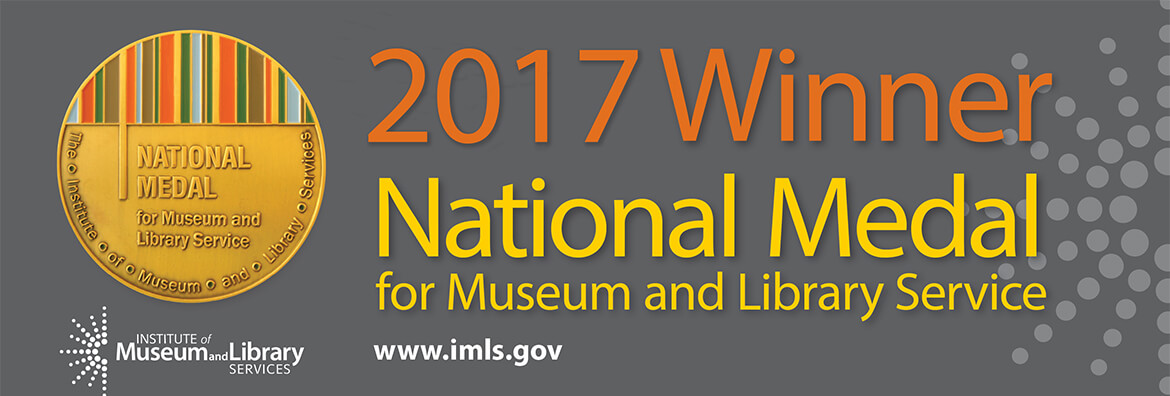
As one of only two art museums among the five museums and five libraries named 2017 National Medal winners, the Leigh Yawkey Woodson Art Museum received the award from the Institute of Museum and Library Services, a federal agency supporting the nation’s approximately 123,000 libraries and 35,000 museums, all of which are eligible for the award.
Winners are chosen because of their significant and exceptional contributions to their communities. For 23 years, the award has celebrated institutions that respond to societal needs in innovative ways, making a difference for individuals, families, and their communities.
Prioritizing barrier-free access throughout the Woodson Art Museum’s physical facility benefits those with disabilities and all visitors. Hunter Kelch, a 25-year-old visitor with Cerebral Palsy who blogs about accessibility issues, gave the Museum his first-ever five-wheelchair-star rating in August 2016 for full accessibility and great service. He and his mother “were able to sit in a beautiful setting and take a break from our hectic lives,” he wrote. “For that moment, we were mother and son, not caregiver and client. When caregivers do not have to make adjustments due to obstacles, their experience changes from that of a caregiver to being a friend or family member. Only rarely am I able to give that gift to my mom, who traveled this ‘disabled journey’ with me, my entire life.” Hunter wrote a letter of support that accompanied the Museum’s nomination, submitted by a community member and volunteer, for the 2017 National Medal.
